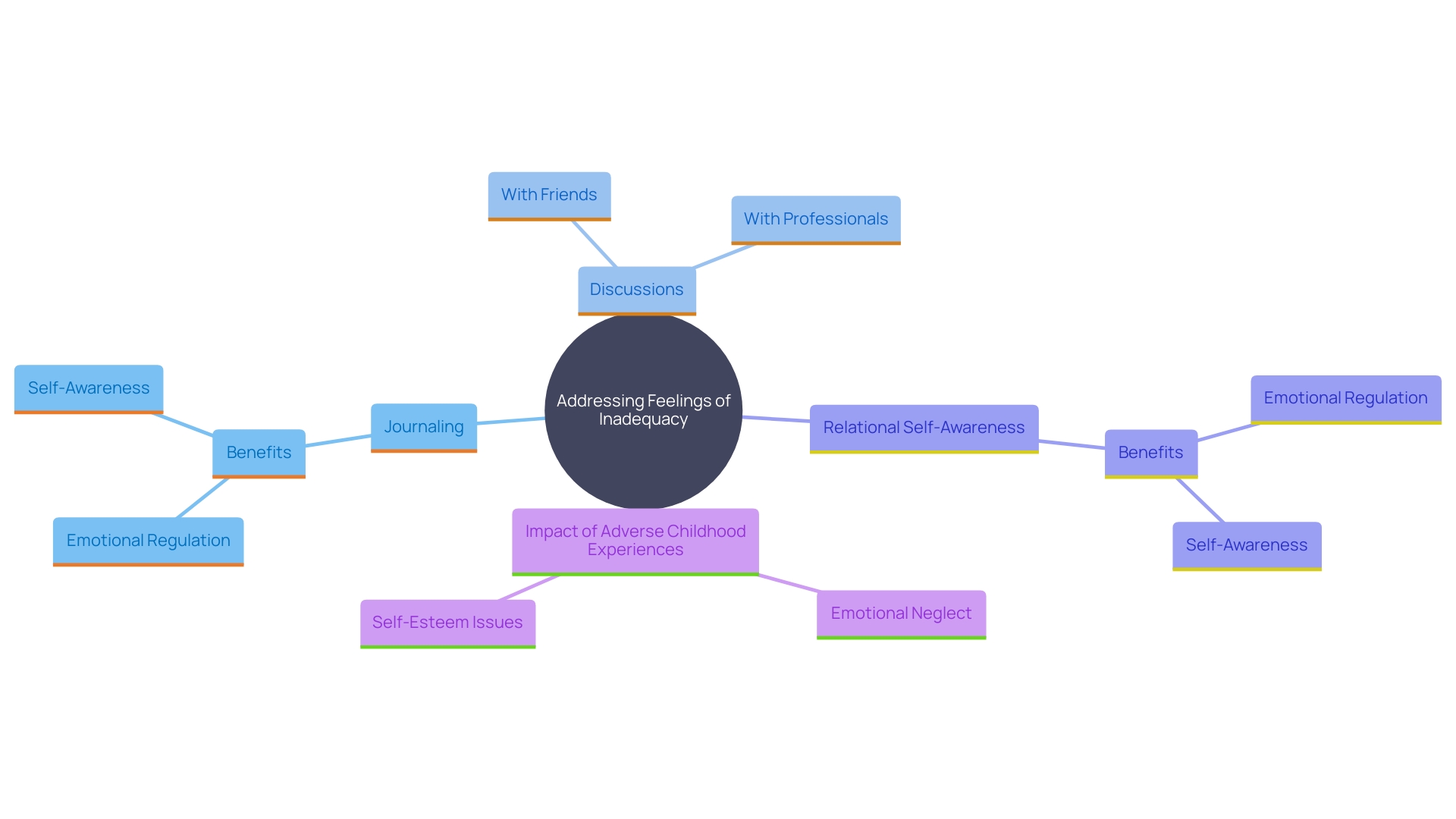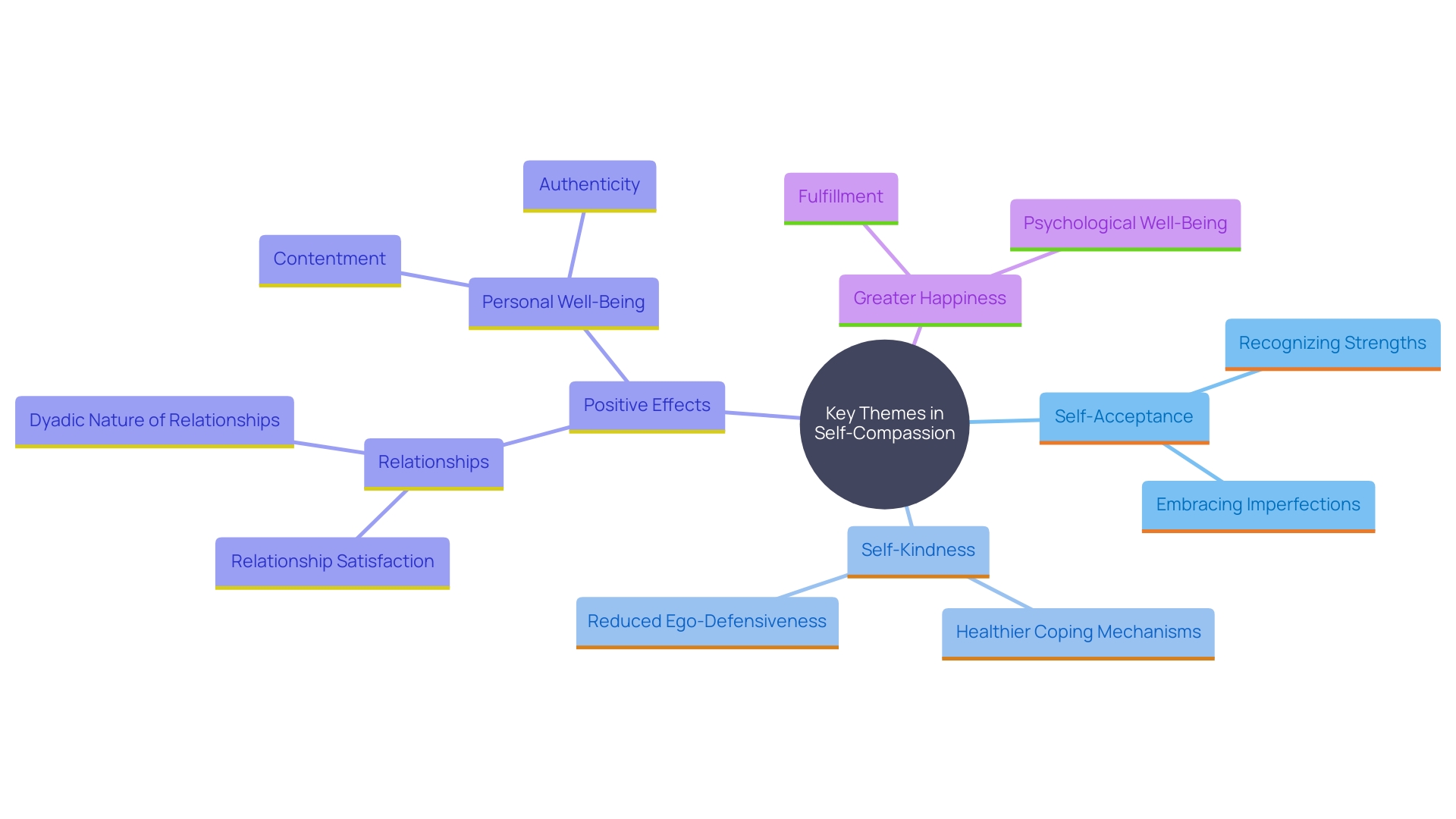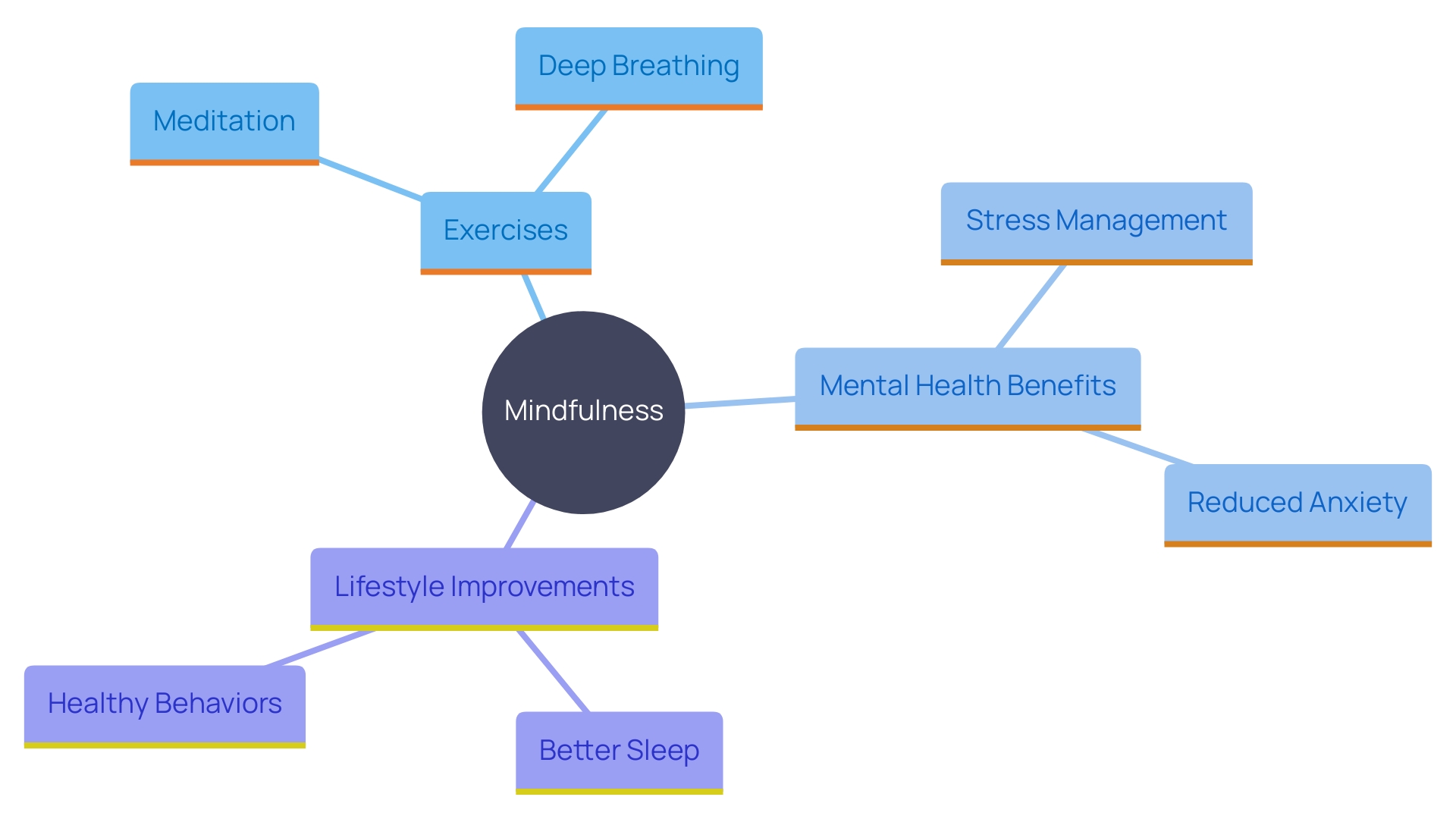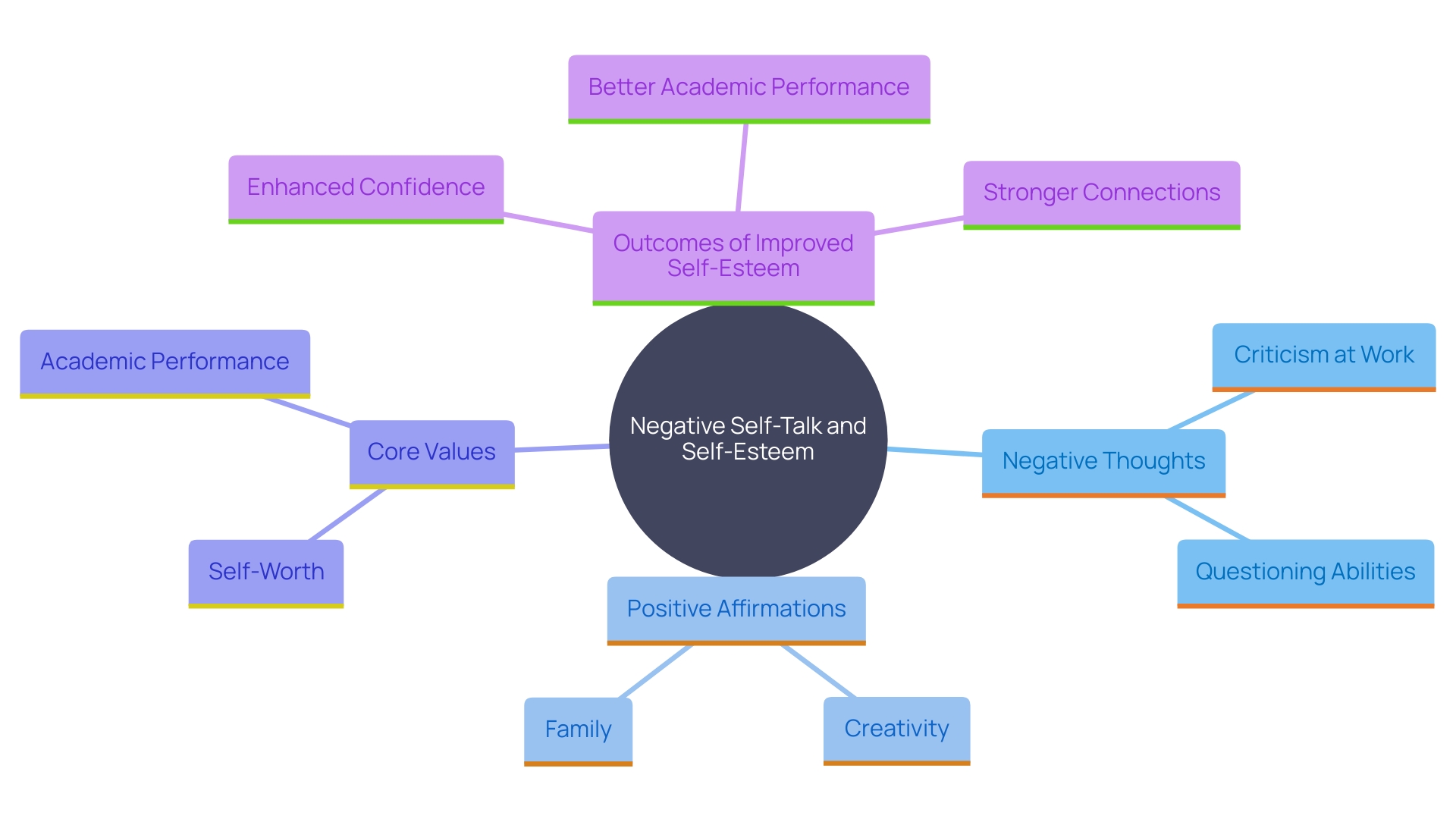PLEASE NOTE:
While the following article relates to your Google search, the services and methods at Goodwin Hypnosis may differ from those mentioned below. Since 2007, we have helped thousands of clients to overcome emotional and behavioral challenges when all else had failed. According to many of them (and their referring healthcare providers), our methods are faster than talk therapy, easier than willpower, and safer than medication. If you’re ready to resolve your issues, skip the article and visit the rest of our website, where you can learn about our unique approach, watch client testimonial videos, and discover how working with us one-on-one could be the solution you’ve been searching for.
Introduction
Insecurities often burden relationships, casting shadows over even the brightest moments. By understanding their origins and impact, one can begin the journey toward healing and self-compassion. Reflecting on personal triggers, acknowledging that everyone harbors insecurities, and learning to extend kindness inward—just as one would to a dear friend—can significantly enhance relationship satisfaction.
Delving deeper, identifying the root cause of insecurities through journaling or professional guidance fosters emotional resilience. Regular self-reflection allows for greater self-awareness and emotional regulation, paving the way for more authentic and fulfilling connections.
Practicing self-acceptance and self-compassion is paramount. Embracing imperfections and treating oneself with kindness, especially during challenging times, can lead to higher well-being and stronger, more satisfying relationships. Studies show that self-compassionate individuals are better equipped to handle stress and maintain healthier connections.
Mindfulness, another powerful tool, anchors one in the present moment, promoting calm and clarity. Short, daily mindfulness exercises can reduce anxiety and enhance mental health, encouraging a more positive outlook on life and relationships.
Reframing negative self-talk into positive affirmations is essential for building self-esteem. By focusing on core values and positive affirmations, one can cultivate a stronger sense of self-worth and navigate relationships with confidence.
Finally, surrounding oneself with supportive and understanding individuals can significantly improve well-being. Meaningful social interactions bolster mental health, reduce stress, and foster a sense of belonging. Engaging with trusted friends, family, or support groups can provide the reassurance and emotional support needed to overcome insecurities and thrive in relationships.
Understanding Insecurities
Insecurities often arise from past experiences, societal pressures, or deeply held internal beliefs. Recognizing that everyone has doubts can help you understand you're not alone in your emotions. 'Reflect on what triggers your insecurities in connections and how they impact your self-view.'. Grasping these triggers can promote kindness towards oneself, a trait that greatly improves contentment in connections. According to studies, self-kindness can be developed and is essential for sustaining healthy connections. When facing moments of personal inadequacy or low self-worth, consider how you would support a friend in a similar situation and apply that same kindness to yourself.
Identifying the Root Cause of Insecurities
To effectively address feelings of inadequacy, it's crucial to delve into their origins. Engaging in activities like journaling can significantly aid in this process. Regular journaling has been shown to reduce stress, manage anxiety and depression symptoms, enhance self-awareness, promote emotional regulation, and even strengthen resilience. For instance, mental health advocate Jo Love emphasizes that journaling allows individuals to process their emotions and create opportunities for self-reflection.
Discussing concerns with a trusted friend or seeking guidance from a professional can also be pivotal. This method corresponds with Dr. Alexandra H. Solomon's model of Relational Self-Awareness which promotes comprehension of how previous connections and personal encounters influence present uncertainties. Identifying these links can pave the way for healing. Dr. Solomon, a renowned expert in relationships, highlights the importance of bringing awareness, curiosity, and authenticity to one's relationships with oneself and others.
Comprehending and tackling uncertainties necessitates recognizing their origins in previous events. Studies, such as those led by researchers like Ian Colman, have shown a potential association between adverse childhood experiences (ACEs) and future mental health challenges. By identifying these connections, individuals can begin to work through their uncertainties and move toward healing.

Practicing Self-Acceptance and Self-Compassion
Self-acceptance plays a vital role in overcoming insecurities in relationships. Start by recognizing your strengths and embracing your imperfections. This practice can help you accept yourself and your difficult emotions when you need comfort and soothing. By speaking to yourself kindly, especially during challenging times, you cultivate a sense of understanding and care for yourself. Research indicates that being kind to oneself entails offering the same understanding and kindness we would provide to a close friend. It also means being mindful of our emotions without letting them overwhelm us and recognizing that our stressors are part of the shared human experience.
In a study published in the Journal of Happiness Studies, participants who engaged in self-kindness reported higher well-being and better coping with stress during the early days of the COVID-19 pandemic. The study involved 430 participants in the first survey and 264 in the last survey. It found that self-compassionate individuals are more likely to take personal responsibility for their actions and make positive changes.
Moreover, being self-compassionate in romantic connections enhances happiness and satisfaction for both partners. A study involving 209 heterosexual couples found that men, in particular, benefit when their partner is self-compassionate. This approach helps create a sense of safety, allowing individuals to acknowledge their shortcomings without fear. As Dr. Robert Körner from the University of Bamberg explains, kindness towards oneself in partnerships benefits both individuals in the couple by promoting a caring and attentive attitude towards oneself.
Remember, your worth isn’t defined by external validation. Embracing self-compassion and self-acceptance can lead to more fulfilling and joyful connections, motivating you to reach your goals and make positive changes in your life.

Building Confidence Through Mindfulness
Mindfulness serves as a powerful tool to anchor yourself in the present moment, enabling you to observe your thoughts without judgment. Engaging in mindfulness exercises, such as meditation or deep breathing, fosters a sense of calm and clarity. This practice enhances awareness of negative thoughts, allowing you to let them pass without dwelling on them.
Recent studies have shown that even short, daily mindfulness sessions can offer significant mental health benefits. For instance, participants in a trial conducted by psychologist Masha Remskar at the University of Bath reported gaining better insights into their minds and viewing the world through a different lens. These sessions not only helped them manage stress but also promoted healthier lifestyle behaviors, such as regular exercise.
Mindfulness meditation is considered a fundamental pathway to ending suffering and instilling wisdom, as emphasized in Buddhist teachings. It involves paying attention in a non-judgmental and detached manner, which can lead to a deeper understanding of the self and the nature of suffering. This approach has been extensively studied and is recognized for its benefits in mental health, including reducing depression and anxiety.
Incorporating mindfulness into your daily routine doesn't require special equipment or a significant time commitment. Just five to 15 minutes of daily meditation can yield benefits, such as better sleep, improved mental health, and stronger intentions to live a healthy lifestyle. By practicing mindfulness, you can cultivate positive feelings towards yourself and others, fostering psychological resilience and overall well-being.

Flipping Negative Self-Talk
Negative self-talk can intensify feelings of insecurity, making it harder to feel confident in connections. A powerful way to counteract this is by reframing negative thoughts into positive affirmations. For instance, if you catch yourself thinking, 'I’m not good enough,' try replacing it with, 'I am enough just as I am.' This simple yet effective shift in mindset can significantly enhance your self-esteem and overall outlook. Research has shown that self-affirmation can improve academic performance, particularly among students from traditionally disadvantaged backgrounds who may question their abilities. Moreover, a series of experiments involving over 1500 U.S. adults revealed that focusing on core values, such as family or creativity, rather than specific negative experiences, can help restore self-esteem. By embracing positive affirmations and concentrating on what genuinely matters to you, you can cultivate a stronger sense of self-worth and navigate connections with greater confidence.

Cultivating Supportive Relationships
Surrounding yourself with supportive and understanding individuals can make a world of difference. Engaging in meaningful social interactions, particularly face-to-face, has been shown to significantly improve well-being and reduce feelings of stress and loneliness. For instance, research from Stanford University highlights that in-person interactions have more substantial benefits for mental health compared to digital communications.
Pursuing connections that uplift you and encourage open dialogue is essential. High-quality relationships not only help in coping with stressful life challenges but also lead to better mental and physical health. Studies have found that people with supportive social connections are more likely to make healthier choices and live longer, healthier lives.
Sharing your feelings with trusted friends or family can provide reassurance and remind you of your value. In fact, a study published in Nature Mental Health found that participants with any form of social support were less likely to feel depressed than those with no support. Emotional support and positive social interactions were particularly protective against depression.
Participants in various studies have expressed diverse experiences when accessing professional support, ranging from appreciation to increased stress. This highlights the importance of finding the right kind of support that truly resonates with you. Whether it's through trusted friends, family, or support groups, having a network of understanding individuals can help you navigate the complexities of trauma and foster a sense of belonging and self-worth.
Conclusion
Insecurities can significantly impact relationships, but understanding their origins and effects is the first step toward healing. Acknowledging that everyone experiences insecurities fosters a sense of connection and self-compassion. By reflecting on personal triggers, individuals can begin to cultivate a kinder self-view, reinforcing the importance of treating oneself with the same compassion one would offer a dear friend.
Identifying the root causes of insecurities through practices like journaling and seeking professional guidance can pave the way for emotional resilience. This self-awareness helps individuals navigate their feelings, allowing for healthier interactions in relationships. Engaging in self-acceptance and self-compassion nurtures a sense of worth that is not defined by external validation, ultimately leading to more fulfilling connections.
Mindfulness practices can further enhance emotional well-being by anchoring individuals in the present moment. This awareness helps to manage negative thoughts and fosters a positive outlook on life and relationships. Flipping negative self-talk into affirmations strengthens self-esteem, encouraging a more confident approach to interpersonal dynamics.
Finally, surrounding oneself with supportive individuals creates a nurturing environment essential for growth. Meaningful social interactions can significantly bolster mental health, reduce stress, and foster a sense of belonging. By cultivating and engaging in these supportive relationships, individuals can navigate their insecurities, leading to healthier and more satisfying connections.
Embracing these practices can transform insecurities into sources of strength, ultimately enriching personal and relational well-being.
Since 2007, Goodwin Hypnosis has helped thousands of clients with a variety of issues relating to insecurity and self-confidence. If you would like to learn more about working with us one-on-one to overcome your personal challenges, click here.




